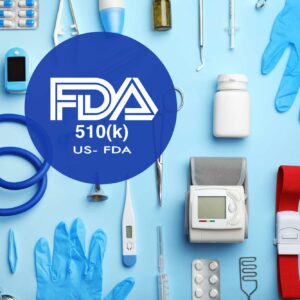As you step out this Halloween ready for a trick or a treat, you may wish to do a fit check and ensure that those decorative contact lenses, and Halloween makeup are FDA compliant!
You may be surprised to learn that FDA regulates decorative contact lenses, also known as Halloween contact lenses, cosmetic contact lenses, colored contact lenses and theatre contact lenses. While they may not correct your vision, decorative contact lenses are intended to change the look of your eyes, adding that extra frightening touch to give you cat eyes or vampire eyes for Halloween.
But these decorative contact lenses are in fact regulated by FDA as medical devices, subject to safety and effectiveness requirements akin to contact lenses that correct your vision.
Just like corrective contact lenses, FDA advises consumers to never purchase contact lenses from a Halloween or novelty store, street vendor, or beauty supply store, and to always have a prescription. Without a valid prescription, fitting supervision or regular check-ups by a qualified eye care professional, decorative contact lenses like all contact lenses, can cause a variety of serious injuries or conditions, including corneal ulcer, or vision impairment and in extreme cases, blindness or the loss of an eye.
The contact lenses should always be purchased from a company that sells FDA-cleared or approved contact lenses and that requires you to provide a prescription. Otherwise, you may risk being haunted long past Halloween!
We remind manufacturers, importers, distributors and retailers in the business of non-corrective decorative contact lenses that all contact lenses in commercial distribution, including decorative contact lenses that are non-corrective, require either a cleared 510(k), an approved Premarket Approval (PMA), or an exemption for investigational use (IDE). Without such premarket authorization by FDA, decorative contact lenses are adulterated and misbranded under the Federal Food, Drug & Cosmetic Act (FDCA).
Contact lenses, including decorative, non-corrective contact lenses, are also subject to general controls of the Act, including the Quality System regulation (21 Code of Federal Regulations (CFR) Part 820), and other applicable device regulations and statutory requirements, including conformance with labeling requirements. Manufacturers, importers, distributors, and retailers are also subject to FDA inspection. FDA has inspected several firms distributing decorative contact lenses and warned firms that selling decorative contact lenses without a valid prescription or proper labeling that includes information about the risks and proper instructions for safe use is a violation of federal law. FDA has also informed mass marketing firms and on-line site operators about the risks associated with decorative contact lenses distributed without appropriate eye care professional involvement.
As devices, imported decorative contact lenses that do not comply with applicable premarket device requirements are subject to detention without physical examination under the procedures described in FDA’s Import Alert #89-08, “Detention without Physical Examination of Devices without Approved PMA’s or IDE’s and Other Devices not Equivalent or no 510(k)”. The import alert advises FDA staff and officials of the United States Customs Service to detain automatically all devices presented at the United States ports of entry that are in violation of federal law.
Further, as a large part of Halloween makeup is about color, businesses and consumers should double check that the color additives used in cosmetics such as face paints are compliant. Color additives must comply with very detailed specifications based on safety information. For instance, a color that is approved for your hair may not be approved for your skin, and colors that are approved for your skin may not be approved near your eyes. When it comes to that ghoulish Halloween glow, there are eight fluorescent (“day glow”) colors approved for cosmetics but none of them are approved for use near the eyes. In terms of colors that glow in the dark or luminescent colors, FDA approved luminescent zinc sulfide for limited cosmetic use, but it’s not for daily use and is not permitted near your eyes. So, as you can see, it can be a bit of an eerie regulatory scare if you don’t comply!
We wish you a very Happy and safe Halloween!
What do ghosts use to do their makeup?
Vanishing cream
For more information on FDA regulatory compliance and enforcement, please email us at info@garg-law.com.


